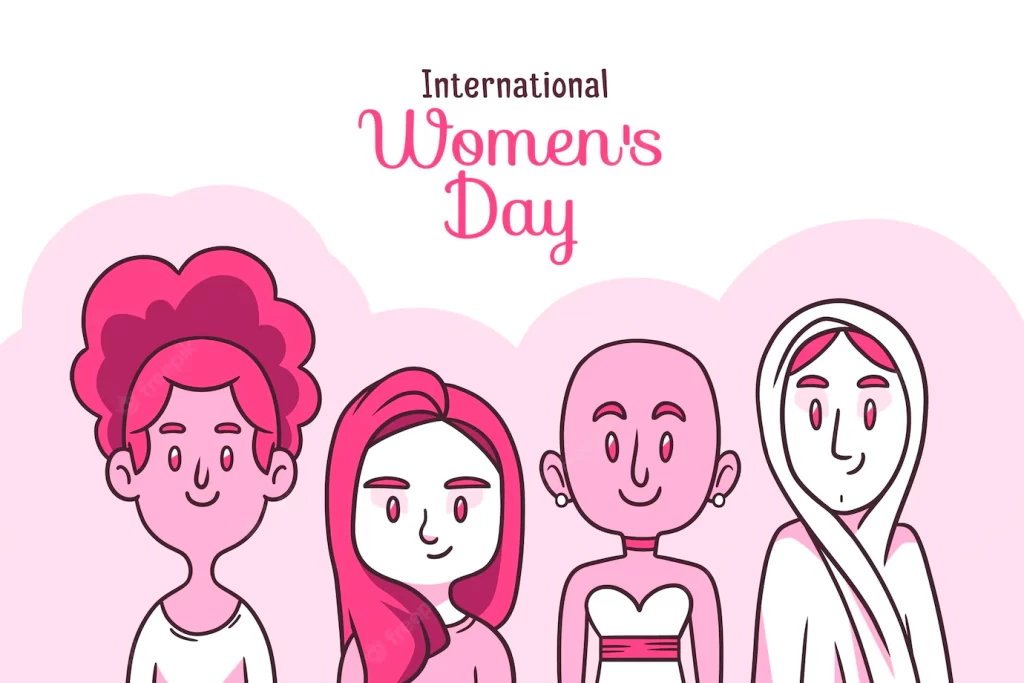On March 8, the world commemorates International Women’s Day (IWD) to honour women’s social, economic, cultural, and political achievements.
Ms. Susanne Mikhail Eldhagen, Regional Director of UN Women Arab States, and Dr. Luay Shabaneh, Regional Director of UNFPA ASRO, made a joint statement for International Women’s Day.
The whole statement is as follows:-
The theme for this year’s International Women’s Day is “Women in Leadership: Achieving an Equal Future in a COVID-19 World,” which highlights the significant contribution of women in leadership at all levels and in all industries. As we face the huge challenges of resolving COVID-19’s health and economical effects, it is more important than ever that women remain at the forefront of local, national, regional, and global recovery efforts.
Female healthcare professionals have played a heroic role in combating the COVID-19 epidemic, according to UNFPA and UN Women. Nearly 80% of the area healthcare staff is made up of women. They’ve also begun to take on more tasks at home. At the same time, as many women were stuck with their abusers and cut off from necessary assistance, the rate of violence against women soared during the lockdown. Midwives in Yemen, Sudan, and Somalia’s remote areas go to great lengths to save lives by supporting pregnant women who lack access to reproductive health treatments. Despite these accomplishments, women continue to face disadvantages and hold just 25% of top positions.
There are several convincing examples of women successfully guiding their society through crisis situations. Dr. Heba Mostafa of Egypt, who works at Johns Hopkins University, helped create an in-house corona virus-screening technique that might soon allow health systems to test up to 1000 people each day. Every day, millions of women across the region keep their families and communities safe, contribute to the economy, and set an example for progress toward a more equitable world as we rebuild better.
We must guarantee that women and girls are enabled to make educated decisions about their bodies, health, and family planning in order to achieve gender equality and women’s empowerment for everyone and allow women and girls to become great leaders. We must create cultures in which girls and women have equal access to high-quality education at all levels, as well as the legal and practical freedom to select their careers.
Women and girls did not have equal opportunity to fulfil their full leadership potential even before COVID-19. This makes it difficult for firms to attain their full potential in terms of revenue and growth — simply because of the unequal playing field that does not foster merit-based leadership. As a result, this has a negative impact on the development of communities and whole societies. For the success of our enterprises, organisations, society, and nations, we need an equal playing field where credentials, merits, and talents decide leadership. Gender equality is crucial, especially in these tough times, because women’s leadership contributions are simply required to speed up the COVID-19 recovery. We can undoubtedly rebuild better and stronger civilizations if we work together.
UN Women and UNFPA are ready to collaborate with all stakeholders to implement international and national frameworks for gender equality, including harmful practises such as child marriage and female genital mutilation, to ensure full access to sexual and reproductive services, and to respond to the needs of the most marginalised and vulnerable – including adolescent girls, people with disabilities, indigenous peoples, migrants, and women re-entering the workforce.
The growth of human and institutional capital, increased gender-sensitive data collecting, and measures that promote women’s health, particularly sexual and reproductive health, and extend their capacity to fully engage in public life should all be part of these legislative and policy changes.
UNFPA and UN Women also collaborate with government, business sector, civil society, and academic partners to promote the preservation of women’s fundamental rights as well as sustainable and equitable development for everyone. We urge governments and the private sector to support women’s leadership by providing an atmosphere that encourages women to demonstrate their leadership potential and talents, as well as making an effort to include women in top leadership roles, particularly at the political level.
